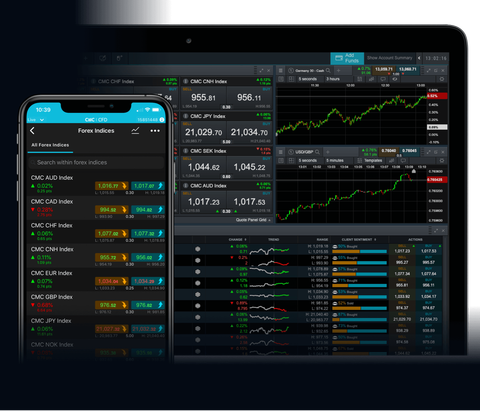Insightful Bytes
Your daily dose of informative news and inspiring insights.
Currency Chaos: Dancing with Dollars in the Forex Jungle
Unravel the secrets of Forex trading! Join the wild ride through Currency Chaos and discover how to profit from the dollar's dance.
Understanding Forex: The Basics of Currency Trading
Understanding Forex is essential for anyone looking to dive into the world of currency trading. Forex, or foreign exchange, refers to the global marketplace where currencies are bought and sold. Unlike traditional stock exchanges, the Forex market operates 24 hours a day, five days a week, providing traders with ample opportunities to engage in transactions. To begin grasping the basics, it is important to familiarize oneself with key concepts, such as currency pairs, pips, and leverage. For a deeper insight into these terms, you can check out Investopedia's guide on currency pairs.
In Forex trading, currencies are quoted in pairs, meaning you are simultaneously buying one currency while selling another. For example, in the EUR/USD pair, you are buying euros and selling U.S. dollars. This trading format creates opportunities for profit based on fluctuations in exchange rates. One crucial aspect to consider is the concept of leverage, which allows traders to control larger positions with a smaller amount of capital. This can enhance potential returns, but it also increases the risk of losses. Discover more about leverage and its implications at FXCM's explanation of leverage.

Top Strategies for Navigating the Forex Market
Navigating the Forex market requires a clear understanding of its dynamics and a solid strategy. One of the top strategies traders should implement is developing a robust trading plan. This involves setting specific goals, defining your risk tolerance, and establishing clear entry and exit points. By adhering to a personalized trading plan, traders can minimize emotional decision-making and enhance their chances of success in the volatile Forex environment.
Another effective approach is to leverage technical analysis. By studying historical price data, patterns, and indicators, traders can make informed predictions about future price movements. Utilizing tools such as moving averages, Bollinger Bands, and the Relative Strength Index (RSI) is recommended. Moreover, it's essential to stay updated with Forex news, as market sentiment can significantly impact currency values. Combine technical analysis with strong risk management practices to navigate the Forex market wisely.
What Makes Currency Prices Fluctuate?
The fluctuations in currency prices are primarily influenced by a variety of factors, including economic indicators, interest rates, and geopolitical stability. For instance, when a country's economic outlook is strong, its currency tends to appreciate. Investors often look at key economic indicators such as GDP growth, employment data, and manufacturing output to determine the health of an economy. Changes in interest rates can also cause significant fluctuations; a rise in rates typically attracts foreign capital, increasing demand for the currency in question.
Moreover, market sentiment plays a crucial role in currency valuation. Traders' perceptions of future economic performance can lead to rapid changes in currency prices. For example, political uncertainties or natural disasters can lead to a decrease in investor confidence, causing currency depreciation. Additionally, central banks manipulate monetary policy to stabilize or stimulate the economy, further impacting currency prices. Understanding these factors helps investors navigate the complex world of foreign exchange trading.